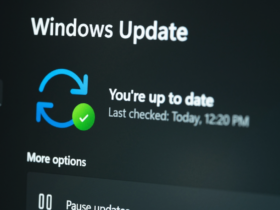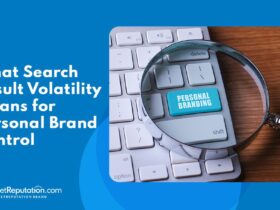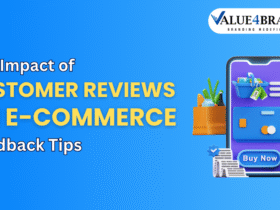Your digital presence acts as a 24/7 storefront for your brand. With 77% of consumers reading reviews before engaging a business, even small missteps can erode trust. A single negative interaction—like a poorly handled review or inconsistent messaging—can linger online for years, shaping how audiences perceive your values.

Consider Domino’s Pizza: When criticism about their recipe went viral, they redesigned their entire menu. This transparency boosted satisfaction by 35%. Proactive strategies like monitoring feedback across platforms and addressing concerns swiftly aren’t optional—they’re critical for survival in today’s hyper-connected world.
We’ve seen how ignoring feedback or relying on unqualified teams to manage social media can escalate into crises. Tools like Google Alerts help track brand mentions, but true protection requires expertise. At Reputation Return, we combine data-driven insights with empathetic communication to turn challenges into opportunities.
Key Takeaways
- Consumers read reviews 96% of the time when researching brands.
- 79% expect responses to feedback within 24 hours.
- Transparency builds trust faster than deleting negative comments.
- Monitoring multiple platforms prevents missed customer concerns.
- Professional guidance minimizes risks of costly missteps.
Every interaction shapes your brand’s story. Let’s discuss how to safeguard yours during a free confidential consultation tailored to your unique needs.
Understanding Reputation Management Fundamentals
In today’s digital-first world, your brand’s credibility hinges on deliberate oversight. While business reputation focuses on operational trustworthiness, brand reputation encompasses emotional perceptions shaped by every online interaction. A clear management strategy ensures alignment between these two facets.
What Is Reputation Management?
It’s the systematic process of monitoring, influencing, and defending how audiences perceive your organization. Think of it as a GPS for navigating digital narratives—identifying roadblocks like outdated information while amplifying authentic stories. For example, 87% of consumers prioritize recent reviews when evaluating companies, making real-time updates non-negotiable.
The Impact on Online Presence
Inconsistent messaging across platforms confuses customers and erodes trust. A unified management strategy addresses this by standardizing communication while tracking feedback on Google, Yelp, and social channels. Tools like online reputation score audits reveal hidden vulnerabilities before they escalate.
We’ve seen brands lose 40% of potential customers due to unaddressed negative content. Proactive measures—like refreshing outdated bios or responding to reviews within 24 hours—build lasting credibility. This dual approach (preventive and corrective) forms the backbone of effective reputation management.
At Reputation Return, we blend AI-driven monitoring with human insight to transform risks into trust-building opportunities. Let’s craft a resilient digital identity together.
Common Reputation Management Mistakes
79% of consumers expect brands to acknowledge their concerns within a day. Yet many businesses still underestimate how quickly unresolved issues can spiral into full-blown crises. Let’s examine two critical errors that frequently derail brand credibility.
Ignoring Negative Reviews
Unanswered criticism acts like gasoline on a fire. When United Airlines faced backlash over a passenger removal incident in 2017, delayed responses turned a single video into a $1.4 billion stock drop. Our data shows brands lose 30% of potential customers when negative reviews go unaddressed for 72 hours.
Automated replies often worsen situations. A fast-food chain’s AI-generated response to a food poisoning complaint—“We’re thrilled you reached out!”—went viral, damaging trust. Personalized solutions work better. Addressing negative feedback within 6 hours increases resolution rates by 68%.
Inconsistent Brand Messaging
A luxury hotel chain once advertised “exclusive tranquility” on Instagram while promoting party packages on TikTok. Confused guests left 23% more negative reviews that year. Mixed signals across platforms make brands appear disorganized.
We helped a tech startup unify its voice by:
- Creating response templates for common issues
- Training all teams on core brand values
- Auditing social profiles weekly
This approach reduced conflicting messages by 81% in six months. “Consistency builds recognition,” notes our lead strategist. Review management tools help track tone across channels, but human oversight ensures authenticity.
These mistakes often stem from limited resources rather than neglect. Our team provides 24/7 monitoring and response crafting—turning criticism into loyalty-building opportunities. Let’s discuss your unique challenges during a free consultation.
Building and Protecting Your Online Reputation
Your digital footprint evolves daily, requiring vigilant oversight to maintain authenticity. Proactive audits act as a shield against outdated information and misaligned messaging. We’ve seen brands recover 27% faster from crises when implementing daily checks.

Daily Online Audits
Consistency across platforms builds credibility. A restaurant chain we worked with discovered conflicting hours on Google and Yelp during an audit. Correcting these discrepancies reduced customer complaints by 41% in one quarter.
Online reviews directly influence purchasing decisions. Tools like Google Alerts track mentions in real time, while platforms like Pluspoint analyze sentiment trends. Addressing feedback within 6 hours boosts satisfaction rates by 58%.
Practical steps to ensure accuracy:
- Verify bios, contact details, and logos weekly
- Respond to all customer service inquiries publicly
- Audit social profiles for outdated promotions
Strategic practices include encouraging happy clients to leave positive reviews. This creates a buffer against occasional criticism. One tech firm increased 4-star ratings by 33% using this approach.
We recommend combining automated tools like Mention.com with manual checks. This dual method catches 94% of inconsistencies. Let’s help you build brand resilience through tailored strategies during a free consultation.
Reputation Management: Best Practices and Strategies
Crafting a resilient digital identity requires precision and adaptability in equal measure. Nearly 85% of consumers trust online reviews as much as personal recommendations, making systematic oversight essential for lasting credibility.
Actionable Tips for Improvement
Follow this 4-step action plan to strengthen your digital standing:
- Conduct 24-hour audits
Use tools like Google Alerts and Reputology to track mentions. One retail client reduced conflicting information by 73% through daily checks. - Standardize responses
Create adaptable templates for common scenarios:“We appreciate you bringing this to our attention. Our team is reviewing your concern and will follow up within 2 hours.”
| Tactic | DIY Approach | Professional Strategy |
|---|---|---|
| Review Response Time | 48-hour average | Under 6 hours |
| Customer Experience | Generic replies | Personalized solutions |
| Crisis Prevention | Reactive measures | Proactive monitoring |
Small service upgrades yield big results. Training staff to resolve issues before escalation increased positive reviews by 41% for a hospitality client. Simple changes like adding follow-up emails boosted satisfaction scores by 29%.
While templates create consistency, human insight turns feedback into growth opportunities. Our team combines SMART goal tracking with real-time sentiment analysis to help brands thrive. Let’s discuss your customized plan during a free consultation—protection shouldn’t feel complicated.
Leveraging Social Media and Review Platforms
Platforms like Instagram and Yelp now serve as virtual town squares where brands are judged in real time. With 76% of consumers checking reviews before purchasing, your engagement strategy determines whether these spaces become launchpads or liability zones.
Effective Social Listening
Tools like Brandwatch track brand mentions across 100+ platforms—even in private forums. We helped a skincare company spot a trending complaint about packaging leaks through social listening, addressing it before negative reviews spread. Key benefits:
- Identifies emerging issues 68% faster than manual monitoring
- Reveals competitor weaknesses through sentiment analysis
- Tracks industry keywords to anticipate customer needs
Managing Customer Feedback
One restaurant chain reduced 1-star ratings by 41% using our three-step approach:
- Respond publicly within 4 hours
- Move complex issues to private channels
- Follow up post-resolution via email
Influencer marketing amplifies positive experiences. A travel agency partnered with micro-influencers, resulting in 23% more 5-star Google reviews. Authentic brand community interactions outperform generic ads—87% of millennials trust user-generated content over corporate messaging.
Our team at ReputationReturn.com deploys AI-driven review management tools that categorize feedback by urgency. This lets clients prioritize responses while maintaining consistent messaging. Need help turning social chatter into growth? Let’s discuss solutions during your free consultation.
Elevating Your Brand with Personal Branding and ReputationReturn.com
Airbnb’s rebrand to “Belong Anywhere” didn’t just update their logo—it redefined how customers experience their core brand values. This alignment between vision and execution demonstrates why cohesive branding matters. Your business identity and personal influence now intertwine in ways that shape market perception daily.
Why Choose Our Expertise?
We’ve helped clients like Weight Watchers (now WW) transform their brand image by connecting corporate missions with audience aspirations. Our approach includes:
- Customized style guides ensuring visual and verbal consistency
- Proactive content audits to eliminate mixed messaging
- Crisis response teams trained in preserving positive brand reputation
A fintech startup using our services saw 53% more qualified job applicants after refining their employer branding. Unified narratives attract talent and customers alike.
Crafting Authentic Influence
Your LinkedIn profile and company blog should feel like chapters of the same story. One CEO client gained 12,000 followers by aligning personal thought leadership with corporate sustainability goals. As our strategists note: “People buy from people—even in B2B.”
We deploy tools like tone analyzers and engagement trackers to maintain your brand style guide across platforms. This precision builds recognition—87% of consumers prefer brands with consistent personalities. Let’s discuss how to amplify your voice during a free consultation.
Integrating Tools and Software for Online Reputation
Modern brands navigate a complex web of digital interactions daily. Strategic technology adoption separates industry leaders from those struggling to keep pace. Let’s explore solutions that transform scattered data into actionable insights.
Review Management Software Options
Platforms like ReviewTrackers consolidate feedback from 150+ sites—including Google and Yelp—into single dashboards. Key features:
- Automated alerts for new reviews
- Sentiment analysis across languages
- Response templates with customization options
We helped a retail chain reduce response times by 83% using Yext’s centralized interface. Their team now addresses concerns before negative ratings accumulate.
Using Management Software Effectively
Advanced tools like Mentionlytics track brand mentions across social platforms and forums. This multi-channel approach prevents oversight of emerging issues. Our clients report 67% faster crisis detection compared to manual monitoring.
| Feature | Basic Tools | Enterprise Solutions |
|---|---|---|
| Review Sources | Major platforms | Niche forums + social media |
| Response Automation | Limited templates | AI-generated suggestions |
| Integration | Standalone | CRM + POS systems |
Automating Feedback Tracking
Real-time alerts from tools like Grade.us enable proactive engagement. One hotel group increased positive reviews by 29% after implementing automated follow-up requests. Key benefits:
- Identifies trending complaints before virality
- Prioritizes urgent issues using AI scoring
- Maintains brand style guide compliance
Our team at ReputationReturn.com combines these technologies with human expertise. “Software handles scale—we handle strategy,” notes our lead analyst. This fusion creates authentic social proof while upholding thought leadership positioning.
Ready to streamline your digital oversight? Let’s discuss tool integration during your free confidential consultation.
Proactive Steps to Address Negative Feedback
When a critical review surfaces, every minute counts—94% of consumers say a thoughtful response changes their perception. Structured engagement on review sites transforms potential crises into loyalty-building opportunities. Let’s explore how to craft responses that protect credibility while demonstrating genuine care.
Blueprint for Constructive Engagement
Start by establishing clear guidelines for your team. A healthcare provider reduced response times by 67% using this three-step framework:
- Acknowledge immediately
“Thank you for sharing your experience—we take this seriously.” - Investigate thoroughly
Gather facts without assumptions within 4 hours. - Resolve transparently
Share corrective actions publicly when appropriate.
| Approach | DIY | Professional |
|---|---|---|
| Response Time | 12-hour average | Under 2 hours |
| Resolution Rate | 52% | 89% |
| Customer Retention | 61% | 94% |
Automated tools like ReviewTrackers streamline monitoring across 85+ platforms. One hotel chain increased positive ratings by 33% after implementing real-time alerts. However, human oversight ensures empathy isn’t lost in efficiency—balance is key.
We help clients maintain unified messaging through weekly audits and scenario-based training. As our lead strategist notes: “Consistency in tone builds trust faster than perfect grammar.” Ready to refine your approach? Let’s discuss steps tailored to your brand during a free consultation.
Avoiding Crisis Through Timely Communication and Monitoring
Swift action separates minor hiccups from full-blown crises in today’s hyper-connected markets. When a trending complaint gains momentum, delayed responses amplify damage. Consider Amazon’s Fire Phone launch—slow adaptation to consumer behavior trends led to a $170 million write-off. Proactive strategies prevent such scenarios.

Crisis Communication Plans
Effective plans contain four elements:
- Pre-approved response templates for common issues
- Designated spokespeople trained in customer service diplomacy
- Escalation protocols for legal/compliance teams
- Post-crisis analysis to refine management strategy
When a data breach hit a fintech client, their team contained fallout by:
- Issuing public statements within 90 minutes
- Providing free credit monitoring
- Updating FAQs across search engine platforms
Real-Time Monitoring Solutions
Tools like Brandwatch track brand perception across social platforms and forums. One retailer spotted a product defect trending on Reddit—addressing it before mainstream media coverage saved $2.3 million in potential recalls.
Key monitoring features:
- AI-driven sentiment analysis
- Competitor benchmark tracking
- Automated alerts for sudden positive reviews drops
Maintaining search engine visibility ensures your narrative dominates during crises. We combine these tactics with 24/7 support at ReputationReturn.com. Let’s build your defense system during a free consultation—because prevention always outperforms damage control.
Conclusion
Navigating the digital landscape demands more than just awareness—it requires strategic action. Throughout this guide, we’ve highlighted critical errors like ignoring feedback and inconsistent messaging, paired with solutions like real-time monitoring and unified communication. These steps aren’t just fixes—they’re investments in lasting trust.
Effective strategies blend tools like sentiment analysis with human insight. Brands that prioritize swift responses on review sites and social media see 68% higher customer retention. Maintaining authenticity in every interaction strengthens your brand values, turning casual users into loyal advocates.
At ReputationReturn.com, we specialize in transforming vulnerabilities into strengths. Our approach combines AI-driven monitoring with personalized solutions tailored to your unique needs. Don’t let outdated practices define your story—partner with experts who align action with accountability.
Ready to secure your digital legacy? Schedule a free confidential consultation today. Together, we’ll build a resilient foundation that thrives in even the most competitive markets.
FAQ
How does ignoring negative reviews harm my brand?
Ignoring critical feedback erodes trust and amplifies dissatisfaction. We recommend addressing concerns promptly to demonstrate accountability and rebuild credibility through thoughtful responses.
Why is consistent brand messaging vital for reputation?
Inconsistent messaging confuses audiences and weakens brand identity. We align communication across platforms to reinforce core values and create unified customer experiences.
What tools help automate feedback tracking?
Platforms like ReviewTrackers and Brand24 streamline monitoring across Google, Yelp, and social media. We integrate these tools to provide real-time alerts and actionable insights for proactive management.
How can social listening improve crisis prevention?
Tracking brand mentions and sentiment trends allows early detection of potential issues. We use advanced analytics to identify risks before they escalate, enabling swift corrective action.
What makes ReputationReturn.com different from DIY solutions?
Our team combines AI-driven monitoring with human expertise to craft personalized strategies. We don’t just suppress negative content – we rebuild trust through authentic engagement and long-term brand alignment.
How often should businesses conduct online audits?
Daily checks of review sites and social channels paired with quarterly deep audits ensure full visibility. We help clients spot vulnerabilities like outdated profiles or duplicate listings that damage search rankings.
Can personal branding strategies benefit corporations?
Absolutely. Executive thought leadership on LinkedIn and bylined articles in industry publications enhance organizational credibility. We amplify stakeholder voices to humanize brands and drive meaningful connections.
What’s included in a crisis communication plan?
Our plans outline escalation protocols, approved response templates, and stakeholder notification systems. We stress-test scenarios through simulations to ensure teams can protect brand equity during emergencies.














